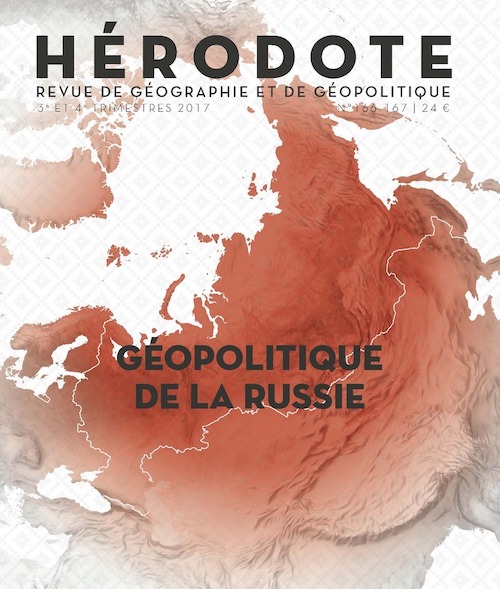Le prétorianisme russe : l’exercice du pouvoir selon Vladimir Poutine
Cet article vise à restituer la dynamique du poutinisme dans son évolution historique depuis 2000. Le chef du Kremlin a fixé, dès le début de la décennie 2000, un objectif : replacer la Russie au centre du jeu mondial, reconstruire un État qui soit également une puissance prospère qui compte dans le monde globalisé. La centralisation du pouvoir autour de la personne de Vladimir Poutine participe d’un mode d’exercice du pouvoir qualifié ici de prétorien. La notion de prétorianisme est le fil conducteur qui permet de comprendre l’action politique menée au sommet de l’État russe, en politique intérieure comme extérieure, et d’entrevoir, à la veille de l’élection présidentielle de 2018, les évolutions possibles de l’exercice du pouvoir en Russie.
Abstract : Russian Praetorianism : exercising power according to Vladimir Poutine
This article aims at describing and analyzing the internal dynamics and political rationale of Putinism in its historical evolution since 2000. In 2000, Putin set the goal of restoring Russia’s international prestige and role on the world stage and, therefore, rebuilding the domestic institutional and economic prerequisites of a great power status in the context of a globalized world. Power centralization in the hands of the Russian President can be seen as a praetorian dynamic leading to the establishment of a loyal « preatorian guard » of men who hold the sterring wheel of the Russian state and corporate power. Looking at the development of Russian Praetorianism is the thread that leads us to understand, in a concise manner, how and in what ways power is being exercised in Putin’s Russia and to draw, at the eve of the 2018 presidential election, a few lines of explanation on the future (or the obsolescence) of Putinism.
Tweeter cet article Suivre @RevueHerodote sur TwitterL’institut Français de Géopolitique offre des formations de master intenses, exigeantes et passionnantes !
Hérodote est historiquement liée à la formation en géopolitique (master et doctorat) de l’Université Paris 8 — Vincennes - Saint-Denis, l’Institut Français de Géopolitique (IFG) où ont enseigné son fondateur Yves Lacoste, sa directrice Béatrice Giblin (également fondatrice de l’IFG), et une partie importante de l’équipe de la revue.
La première année est consacrée à la formation à et par la recherche, qui est au cœur du projet intellectuel et citoyen de l’École France de Géopolitique. Les étudiants et les étudiantes doivent écrire un mémoire de recherche d’une centaine de page appuyé sur une enquête de terrain d’un mois en autonomie. Un accompagnement fort leur est proposé pour favoriser leur réussite durant cette année si différente de leurs expériences précédentes.
En seconde année, quatre spécialisations professionnalisantes sont possibles : géopolitique locale et gouvernance territoriale, géopolitique du cyberespace, nouveaux territoires de la compétition stratégique, analyse des risques géopolitiques et environnementaux. Toutes ces spécialisations sont ouvertes à l’alternance, et la majorité des étudiants et des étudiantes a désormais un contrat d’apprentissage. Celles et ceux qui souhaitent faire une seconde année de recherche le peuvent, notamment en préparation d’un projet de doctorat.
Avec 85 places en première année, le master de l’IFG offre aussi une véritable vie collective de promo, animée notamment par une association étudiante dynamique. Les étudiantes et étudiants viennent de nombreuses formations et disciplines, notamment : géographie, d’histoire, de droit, de sociologie, de science-politique, Économie et gestion, langues (LLCE/LEA) ou de classes préparatoires.
Les candidatures en première année de master se font exclusivement via la plateforme nationale monmaster.gouv.fr du 26 février au 24 mars 2024. Toutes les informations utiles se trouvent sur le site www.geopolitique.net. En deuxième année, les candidatures doivent passer par le site de l’Université. L’IFG n’offre pas de formation au niveau licence.










